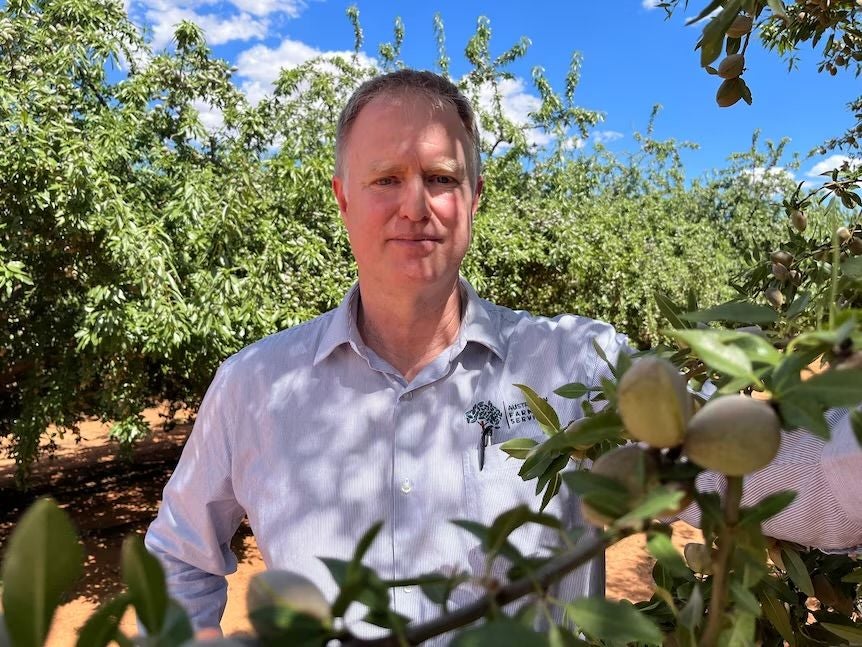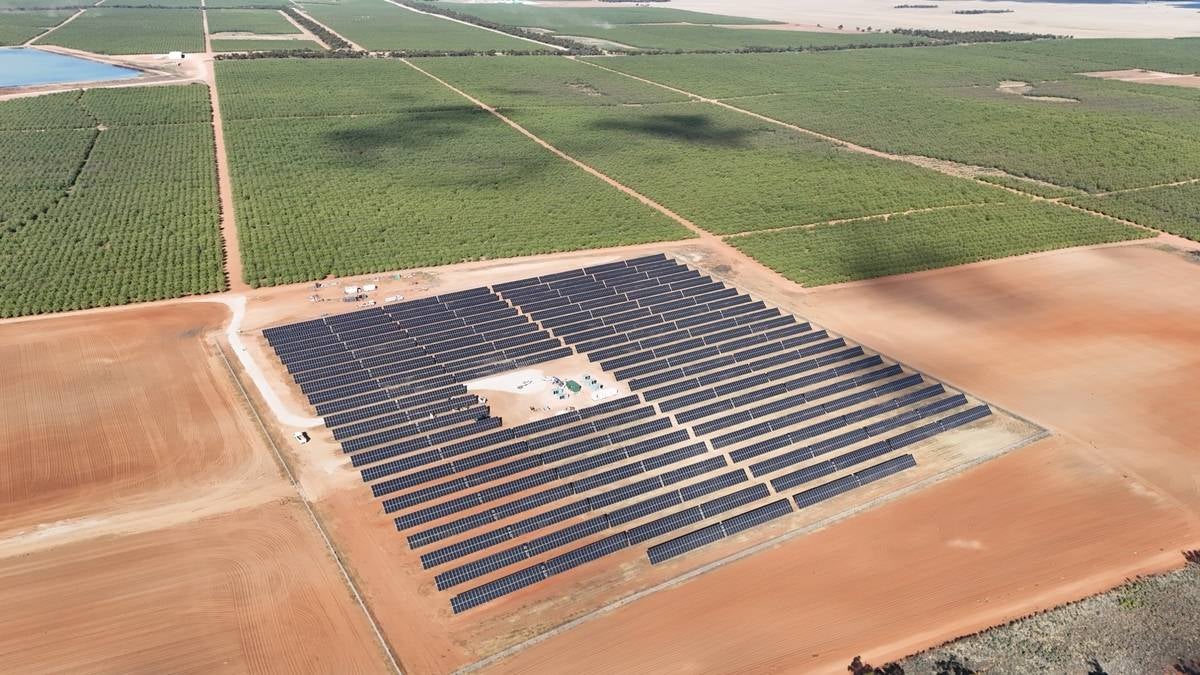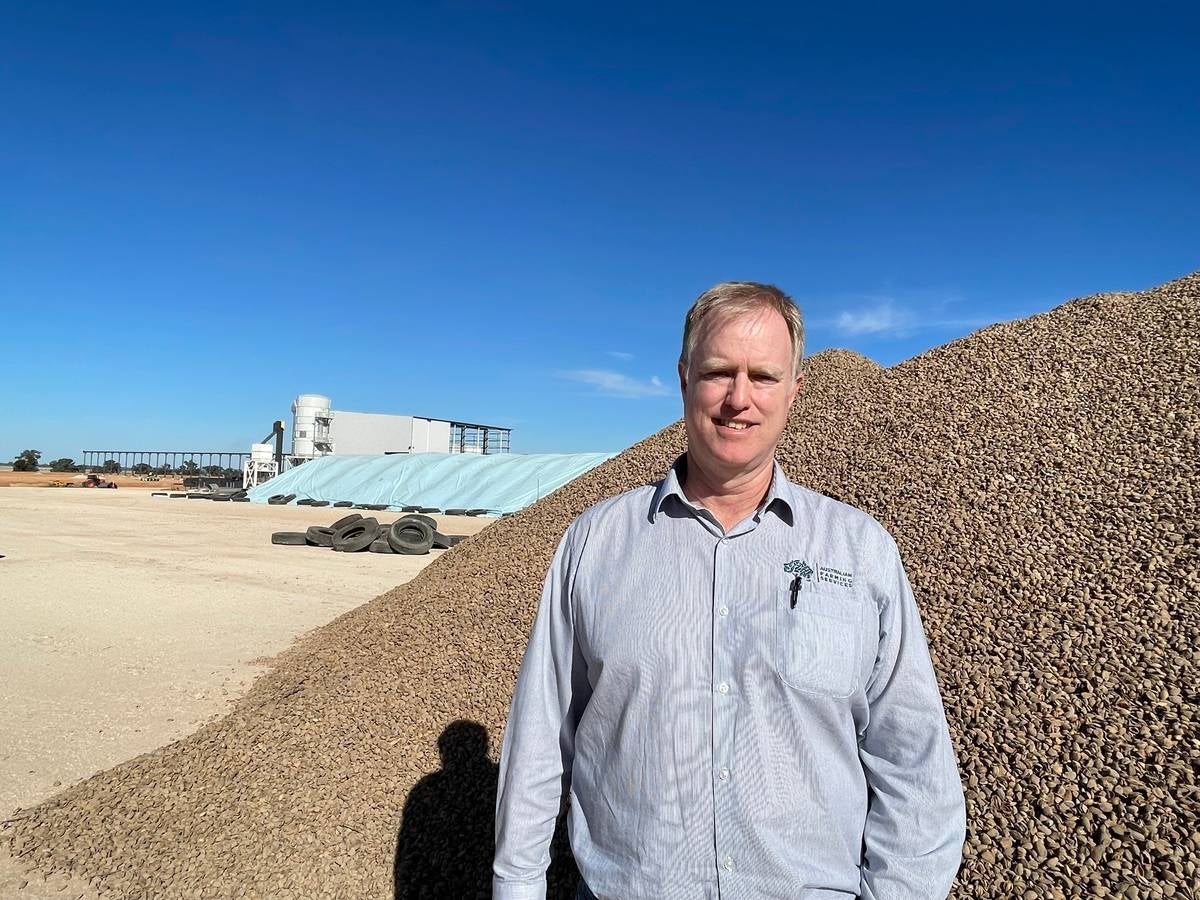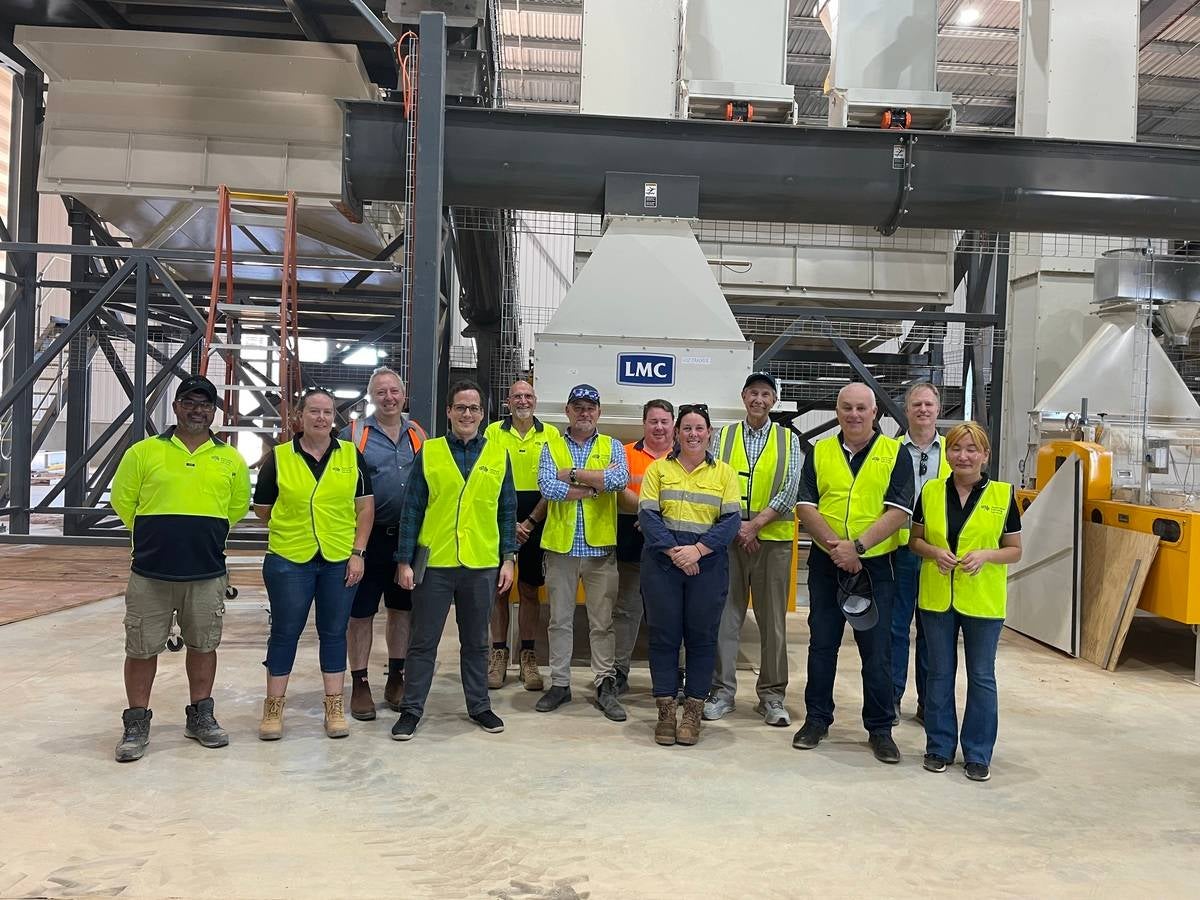Posted by on
21/05/2024
Australian Farming Services Chief Executive Officer David Armstrong
Australia’s booming almond industry has expanded by more than 200 percent over the past decade, and producers have had to evolve rapidly – lest risk becoming a victim of their success.
One Riverina aggregation – consisting of Canally Orchards, Cadell Orchards and Augusta Orchards in the Sunraysia region, has tripled tonnage output over the past five to eight years, and as such, is continually looking for opportunities to increase efficiencies to support this growth.
Managed by Australian Farming Services, the business is currently embarking on an exciting partnership with AGL Energy on two microgrids – providing 85 percent of its power, and cutting CO2 emissions by an estimated 10,900 tonnes over the course of a 20-year Power Purchase Agreement.
AFS Chief Executive Officer David Armstrong said reducing the operation’s energy-usage – particularly its diesel consumption – presented the most obvious saving to be made, whilst simultaneously contributing to the farms’ sustainability goals.
With one farm, Augusta Orchard, connected to the grid, diesel-fuelled generators ran the irrigation from electric pumps on the remaining two orchards, at a significant cost.
“We needed a solution, we couldn’t stay on generators forever, we were using a lot of diesel, and that usage increases as our trees mature and our irrigation volumes rise,” he explained. “It just wasn’t feasible to meet our total irrigation requirements through generators – the variability of costs is too great, during our time we’ve seen diesel at $1 and diesel at $2.20 per litre – it was exposure we knew we needed to be able to manage.”
Originally, David explains, the business looked at connecting Cadell and Canally to the grid, however, the infrastructure and connectivity costs proved prohibitive, and reliability was a concern.
Instead, they sought a renewables pathway, teaming up with AGL Energy to develop microgrids featuring solar and battery capacity, on the Cadell and Canally orchards.
Construction at the 1,690 hectare Cadell Orchard is now complete, with the microgrid system built, owned and operated by AGL under a 20-year power purchasing agreement.
It features a 4.9 MW tracking solar array, a 5.4 MWh battery system and seven kilometres of new underground powerlines and was commissioned last month.
Construction of a 6.5 MW solar array and 5.1 MWh storage system will now begin on the nearby 2,500 hectare Canally Orchard.
“These microgrids will supply around 85 percent of our power, with the balance in high use times still coming from generators – which you do need in the mix in case the sun doesn’t shine,” David explained.

The Cadell Orchard microgrid
The microgrid system will also cut the two farms’ combined Scope 1 CO2 emissions by 10,900 tonnes over the course of the power purchasing agreement.
“Undertaking this development provides practical business and economic solutions, and our commitment to carbon reduction is also part of the conversation, diesel powered generators are just not sustainable in the world that we live in.”
Australia is now the second-largest almond exporter in the world behind the US, and the farms’ Murray Downs branded almonds are supplied globally, predominantly to China and India.
David believed the new infrastructure would ensure their almonds remained well-received by an increasingly discerning market.
“While we sell predominantly to what you’d call a wholesaler, not necessarily the final consumer, everyone is starting to ask questions about our commitment to net zero, this is the new world, so changing our orchard – and what we plan to do in our processing plant – fits into that narrative well.”
Developing local infrastructure to meet demand
Another project helping increase efficiencies and control the value chain is the recent completion of a processing plant, which is located at Murray Downs in NSW.
The processing plant will draw power from a mix of sources, with roughly half its energy needs coming from the grid, and half through a microgrid, which will include solar.
Building the processing plant was not necessarily part of the original business plan, David admits, rather its development was in direct response to the rapid growth of the industry, and subsequent limited processing capacity.
“It was never our intention to get into processing, but when we started approaching existing processors in the industry, they could only commit to processing our almonds in the early years.”
“As our volumes rise with trees maturing and producing bigger yields, existing processors just couldn’t commit.”
“The most logical solution was to build our own processing plant. In hindsight, you feel a little silly not seeing the processing capacity problem coming, but at the time everyone was expanding and there was so much investment in the industry.
“It’s only now that we have the full picture that you can see the extent of new development within the almond industry.”

David Armstrong
His advice to anyone entering the almond industry today is to really question where their almonds are going to be processed.
“We had to change our thinking to make sure we kept up, and now we’ve completed stage one of our processing plant which will be a great addition to our business, and the industry.”
The facility will be built in two stages. Initial processing will be dedicated exclusively to AFS almonds, with space to develop a second line for fellow growers down the track.
“It’s our view that there will be enough demand to trigger a second line, and we hope people will start approaching us when they see the standard of the facility.”
Capacity, he believed, was a challenge the industry needed to overcome.
“The solution to the capacity problem tends to be processors extending the season length in order to cope with the increased volume,” he explains.”This is not an ideal solution from a grower point of view as you run into rain and quality impacts.”
“Our industry has coped with increased volumes by processing for longer and longer, but that’s not really where we want it to be.”
The project will also inject much-welcome employment and industry into the local community.
Rabobank Carbon Workshop helps clarify carbon conversation
Having completed a Rabobank Carbon Training Workshop last year, David said the two-day workshop was beneficial.
“For someone like myself, coming from a zero knowledge base other than the bits and pieces I’d read in the press, it was very helpful in giving a holistic view of what the issues we have to deal with are, and how businesses can tackle them.”
“The challenge is that you hear so many different stories and pieces of advice. A carbon project is a big undertaking for a business, so it helped us think through how we go about it and get a handle on what it all means – what are your carbon emissions, where do you sit – and it’s a very good start to the journey.”
It also provided an opportunity to realise the vast number of initiatives already adopted across the farms, that quietly contribute to the cause.
“The workshop made us think about all the things we were doing on the ground and make a list, because we do a lot of good stuff out there – we replant and revegetate areas, we work on drainage plans, they’re the sort of things you just do and move on, but they’re important things on a farm that you need to take note of and I suppose, give yourself a pat yourself on the back.”
“Generally, people try to do the right thing most of the time, and now it’s a case of documenting it and understanding the benefits.”
One such initiative is the recycling of fertiliser bags.

AFS employees and directors in the recently commissioned processing plant
“We receive a lot of fertiliser in one-tonne bags and we were filling up tips trying to dispose of them,” David explains. “In response, we now put them through a wool compacter, and have found someone to recycle them, which is a terrific solution.”
“When we sat down and thought about the things we’ve done we came up with a lot of good stories from over the years.”
An exciting future ahead, yet not without challenges
The 4,500 hectare aggregation has been in development since 2018, and with this next step into processing and three large renewable energy projects, David admits there’s a lot on the go.
“It’s a big job, and we think we do it well. We have a very strong team who are proud to be contributing to the industry and local employment opportunities, it’s an exciting time.”
Yet this success is not without its challenges.
“Getting the approvals from government and councils is really, really hard these days – it almost feels like the system is creating obstacles rather than encouraging regional development.”
“The current logistics of international trade is also a challenge, there’s always something. We started during the thick of covid delays, and now we have the threat to ships in the Red Sea - these are factors largely out of our control that we have to try and manage. This makes it tricky trying to do something to a deadline.”
Attracting people to regional Australia was one of David’s most significant concerns.
“We battle for people all the time, in our case it doesn’t help that the industry has grown so quickly, so finding experienced almond farmers is hard.”
“The top of my list in every discussion is people. We all need to be doing more to attract and grow the base of people in agriculture.”
In a commitment to supporting the industry, AFS, with some partners, recently started a scholarship system through Charles Sturt University, annually supporting a number of students through a horticulture degree, with these students often acquiring holiday work on the farm.
“Ag is a wonderful career path, with so many opportunities and hopefully this is another way we can showcase and promote agriculture and attract the skilled staff we need to maintain this vibrant industry.”
